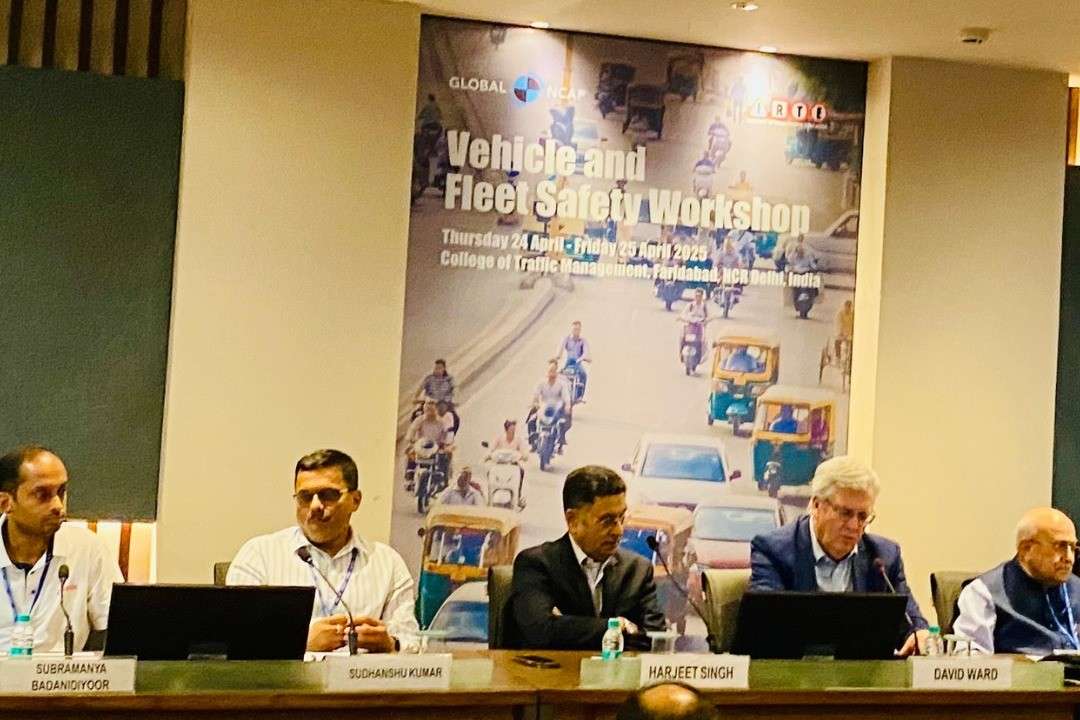Road safety experts, including representatives from manufacturers and the Global New Car Assessment Program (GNCAP), gathered for a two-day workshop on Vehicle and Fleet Safety to discuss key issues surrounding the safety of two-wheeler riders in India. They highlighted the urgent need for dedicated lanes for two-wheelers and more rigorous enforcement of traffic laws to reduce accidents and ensure the safety of riders.
Dr Rohit Baluja, President of the Institute of Road Traffic Education (IRTE), emphasized that the increasing number of powered two-wheelers (e-two-wheelers), which now make up about 44% of all two-wheelers in India, is causing significant challenges for other motorists. He stressed the need for separate lanes for these vehicles and strict law enforcement to ensure the safety of the riders, who are among the most vulnerable road users, alongside pedestrians.
The workshop, organized by GNCAP and IRTE, brought together experts to explore solutions for improving road safety in India.
“India has the highest number of fatal road accidents globally, with 4.8 lakh crashes annually, resulting in 1.8 lakh deaths. Two-wheeler riders account for 38% of fatalities in Delhi alone. In addition to missing dedicated lanes, there is also a lack of speed signage for two-wheelers in the national capital,” said Dr Baluja.
He added that two-wheelers are crucial to urban transportation in India, especially in cities with growing populations. “Despite improvements in public transport, two-wheelers remain essential. The solution is to make them safer through the use of technology,” he explained.
KK Kapila, President Emeritus of the International Road Federation (IRF), spoke about innovative safety technologies that could improve rider protection. He discussed a “smart helmet” developed by the IRF, which prevents a vehicle from starting if it is not worn. In collaboration with DRDO, the IRF has also developed a motorcycle ambulance, which could save lives in critical situations on highways. Additionally, IRF, in partnership with IIT Delhi, has created a motorbike equipped with airbags designed to protect riders in the event of an accident. Kapila urged that such technologies be made mandatory for two-wheeler manufacturers.
David Ward, President Emeritus of GNCAP, also stressed the importance of technological advancements like Anti-lock Braking Systems (ABS) and electronic stability systems in ensuring two-wheeler safety. He noted that vehicles with GNCAP and BNCAP ratings provide consumers with better options for safer rides, contributing to the United Nations’ road safety goals for 2030.
Harjeet Singh, Executive Advisor at Hero MotoCorp, pointed out that although many two-wheeler riders are aware of the risks of violating traffic rules, accidents still occur due to a lack of enforcement and awareness. He called for a mindset change, stronger educational efforts, and stricter enforcement. Singh also emphasized the need for regulations, such as setting a lifespan for two-wheelers, similar to the rules in place for cars.
During the workshop, a new 350cc e-motorcycle featuring ABS brakes and an electronic stability system was launched, marking a significant step forward in two-wheeler safety. The workshop underscored the critical need for comprehensive measures—ranging from infrastructure improvements to technological innovations and law enforcement—to enhance two-wheeler safety in India.







